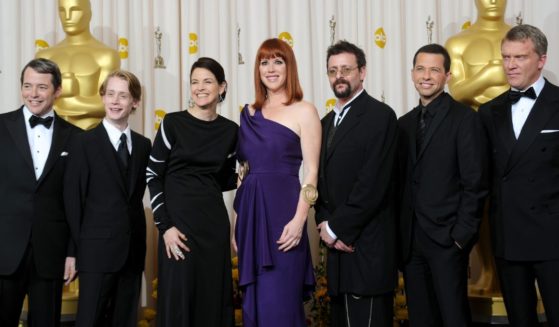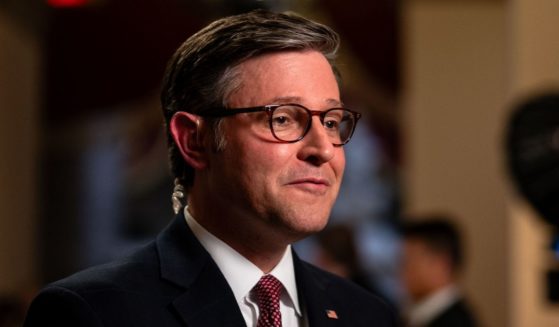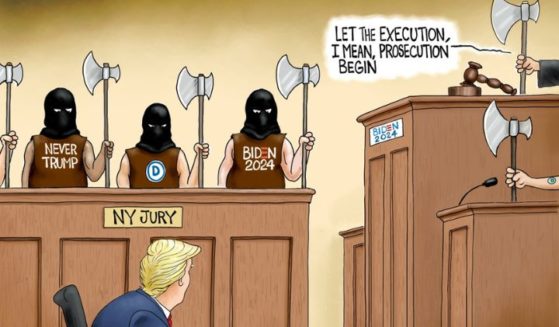New Study Shows Congress Hit Hard After Facebook Algorithm Change, And That's Bad For America
It’s not just news organizations that have been seeing a significant decrease in “interactions” from Facebook. Politicians from both parties are being hit hard, too, interfering with their ability to communicate with their constituents and with voters in general.
A new study by The Western Journal released Monday found that both Republicans and Democrats in the House and Senate had seen double-digit decreases in their interaction rates, with Republicans seeing a 37 percent decrease and Democrats a 27 percent fall.
Readers will remember that back in January, Facebook rolled out a new News Feed that prioritized “helping you find relevant content (and) helping you have more meaningful interactions.” This hit publishers especially hard.
A previous study by The Western Journal, the parent site of Conservative Tribune, found that it had hurt conservative news outlets more than liberal ones.
The new numbers are roughly what one might have expected when Facebook talked about putting “friends, family and groups” in your News Feed and “less public content like posts from businesses, brands, and media.” However, depending on how they’re read, they could indicate an alarming trend.
The study was conducted by downloading data from politicians’ pages before and after the algorithm shift using the social media analysis tool Crowdtangle. The data spanned from August of 2017 to June of this year (excluding January, given the fact that the algorithm shift happened halfway through the month).
The study showed that if you take raw numbers when it comes to congressional Facebook page interactions — reactions, comments and shares on a post — Republicans lost 37 percent and Democrats 27 percent.

This was heavily dependent on star politicians, however. Take, for instance, the fact that Sen. Bernie Sanders, an independent who caucuses with the Democrats, accounts for 60 percent of Democrat-related interactions. When the outlier is removed from the equation, the Democrat decline is 32 percent.
On the other hand, if you eliminate other outliers from the Republican side, their numbers plummet further. If you remove everyone who ran for president in 2016 from the equation — Sanders, as well as Republican Sens. Ted Cruz, Rand Paul and Marco Rubio — the numbers are a 42 percent drop for the GOP compared to a 32 percent drop for the Democrats.
These are the raw numbers for the Senate, including Sanders, Cruz, Paul and Rubio.

Without the presidential contenders taken into account, the numbers show a 61 percent drop for the Republicans and a 40 percent drop for the Democrats.
The House might be a better barometer of how the algorithm has affected political traffic. The stars are smaller there — people like Paul Ryan and Steve Scalise on the Republican side and Nancy Pelosi and Maxine Waters for the Democrats, for instance.

In that sphere, Republicans saw a 32 percent fall while Democrats saw a 25 percent decrease.
Link interaction rate, meanwhile, was down by 32 percent for Republicans and 17 percent for Democrats.

What could these numbers mean? Any number of things, particularly given the factors represented by former presidential candidates who have a strong following. The first answer could be the obvious one: That the same forces at work in the news algorithm shift are at work with politicians. There are also a number of other explanations for the data, however.
Democrats, for instance, have been more energized since Trump’s election, which could explain some of it. It’s also an election year. However, this doesn’t explain why the fall in interactions was less pronounced than that of the Republicans.
There’s also the fact that Democrats have more seats up in the Senate this year than Republicans do. But, again, this doesn’t explain the House numbers.
One could also point to issue-driven conversation created by the Trump administration’s policies — outrage on the left, of course, producing more comments than concord. Another explanation could be that conservative users have been more turned off by Facebook’s various scandals, be they privacy-related or otherwise, and have turned away from the platform in greater numbers.
Or — more likely than not — it could be an intersection of some or all of these factors.
Asked for comment by The Western Journal, Facebook sent a short statement by email.
“We updated News Feed to help people meaningfully connect with friends and family first,” the statement read. “As News Feed prioritizes posts from friends, it means public Pages of all types have experienced declines, regardless of political perspective. In fact, while our own analysis shows decreases across the board for Republican and Democratic member Facebook Pages, there have been large spikes driven by conversation about news events, such as tax cuts last December and the immigration debate in June.”
“That’s true, so far as it goes,” said George Upper, executive editor of The Western Journal and one of the study’s authors. “The essential point of the study, however, is the danger to democracy that Facebook now poses.
“Facebook — the world’s largest social media platform, from which two-thirds of Americans get at least some of their news — has unilaterally chosen to hinder communication between you and your elected officials. Who, exactly, is that supposed to be good for? Was someone — anyone — complaining that they were hearing too often from their senators and representatives on Facebook?
“This feels like a solution in search of a problem to me,” Upper added. “And unfortunately it looks like the problem Facebook is trying to solve is too much open political discourse.”
One surmises that answer won’t be the end of it, however. If Cambridge Analytica and various political imbalances got the attention of Congress, just imagine what happens when the biggest name in social media starts affecting traffic to the pages of our nation’s lawmakers.
You can read the complete original analysis here.
Truth and Accuracy
We are committed to truth and accuracy in all of our journalism. Read our editorial standards.












